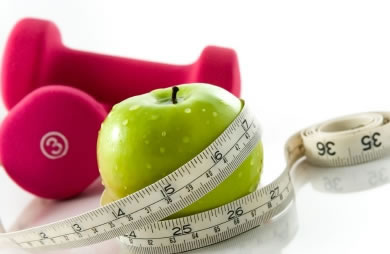|
The first day of your last menstrual cycle, not the day of conception (when the egg is fertilized), is typically the day the doctor uses to determine your baby's due date. This is why most physicians - and BabyFit - use the 40-week term (280 days to delivery from your last menstrual cycle). Eating well and eliminating smoking and alcohol-even before conception - will help give your baby a great start! This is your guide to what will take place in your body throughout the next 40 weeks. You'll learn what to expect from your own physiology, such as when you'll start to show and when you'll begin to feel your baby, and how your baby is changing and growing as well. Although some of the changes you experience may be dramatic or even a little frightening (like uterine cramping or severe nausea), in most cases what you will experience is the normal progression of pregnancy. If you feel uneasy about anything, don't hesitate to discuss it with your health care provider. Chances are you'll be fine, but hearing that from your doctor or midwife can go a long way in helping to ease your fears and anxieties. After all, research shows that when Mom is happy, calm and serene during pregnancy, baby is, too! By Any Name, Folic Acid Is a Must Whether it's called folic acid, folate, folacin, or vitamin B-9, this power-packed nutrient is something you and your baby shouldn't do without. The risks of spina bifida and other birth defects involving the spine and brain are greatly reduced by getting enough folic acid. But how do you know if you're getting the daily recommended 600 micrograms? To be safe, a prenatal supplement is usually suggested. You can also load up on asparagus (the No. 1 plant source for folate), leafy green veggies, beans, legumes, whole grains, citrus fruits, and a host of other fresh foods. Click here for more ideas for building a balanced diet to meet your folate needs. Is It OK To Exercise? One of the first questions many pregnant women have is whether it's safe to stay active once they become pregnant. While there was a time when this was discouraged, the medical community now agrees that some exercise is not only safe but extremely beneficial. In general, you should be able to do most of what you were already doing before pregnancy, with the exception of contact sports and exercises that require great balance. Bottom line: Try to get moderate exercise most days or every day for about 30 minutes. Learn more about pregnancy exercise. |
Week 1: Congratulations!
Your Week-by-Week Guide to Pregnancy
Page 1 of 1





Member Comments